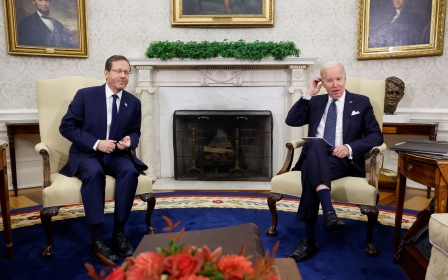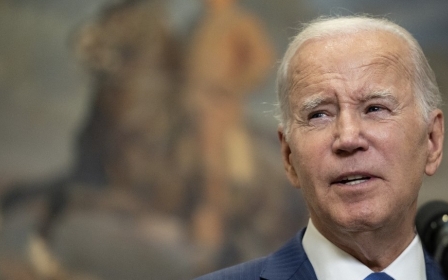Israel: What was the now abolished 'reasonableness standard'?

Despite several months of protests across Israel, on Monday parliamentarians succeeded in passing legislation to remove a key judicial power, limiting the ability of the courts to override the government's laws.
The so-called "reasonableness standard" had long been a thorn in the side of right-wingers in Israel and the government of Prime Minister Benjamin Netanyahu hailed its removal as a victory for parliament over an unelected body.
“Today we did a necessary democratic act, an act that is intended to return a measure of balance between the branches of government,” Netanyahu said in a televised address on Monday evening.
For anti-government demonstrators and opposition leader Yair Lapid, the move instead signals the "destruction of Israeli democracy".
With international markets reacting negatively to the move and condemnation coming from foreign governments, Middle East Eye takes a look at why the "reasonableness standard" was such a point of contention.
New MEE newsletter: Jerusalem Dispatch
Sign up to get the latest insights and analysis on Israel-Palestine, alongside Turkey Unpacked and other MEE newsletters
Since the establishment of Israel in 1948, the "reasonableness standard" has been one of the Supreme Court's key tools to limit the power of the executive.
Moody’s warned on Tuesday about a 'significant risk' likely to have 'negative consequences for Israel’s economy and security situation'
It allowed the court to overrule what it considered unreasonable government decisions and appointments. The power, which was never enshrined in legislation, derives heavily from British common law, which was influential in the formation of the Israeli judiciary.
Israel does not have a written constitution - only a set of roughly defined Basic Laws - and has a heavily centralised executive, and so the Supreme Court's rulings were the main check on overreach.
Critics have claimed that the "reasonableness" assessment is too vague and subjective, and has given too much power to unelected officials.
Supporters say that its integration into Israeli law over the decades has prevented the country sliding into authoritarianism.
What has been the reaction?
Following the passage of the new legislation, there was a massive outcry from the protesters who have been pushing back against the judicial reforms since January.
The law passed with 64 votes in the 120-seat chamber - opposition lawmakers stormed out, shouting "shame".
Financial markets reacted sharply to the new measure. Tel Aviv share indices closed 2.3 percent lower, while the shekel lost 1.4 percent to reach 3.68 against the dollar.
Credit agency Moody’s warned on Tuesday about a “significant risk” likely to have “negative consequences for Israel’s economy and security situation”, while Morgan Stanley also predicted “increased uncertainty about the economic outlook".
Despite previous warnings, however, the US State Department said there was "not going to be any cut or stoppage of military aid, and that is because our commitment to Israel and our commitment to Israel’s security is ironclad".
"Our decades-long partnership with Israel is ironclad,” said spokesperson Vedant Patel on Tuesday.
What happens next?
A number of organisations, including the Israel Bar Association, have filed a petition with the Supreme Court against the legislation. Lapid said he would also be submitting a petition.
However, it is debatable as to whether the court can actually act to strike down the new legislation.
So far the court has never invalidated any Basic Law - striking down this act would therefore be unprecedented.
It would also be fraught with constitutional difficulty, but it is not impossible. It would, however, likely further inflame and polarise an already heated debate in Israel.
The rest of Netanyahu's judicial reforms package will not be put before parliament until after the summer recess.
However, Netanyahu has promised to reach out to the opposition to discuss the future legislation.
Middle East Eye delivers independent and unrivalled coverage and analysis of the Middle East, North Africa and beyond. To learn more about republishing this content and the associated fees, please fill out this form. More about MEE can be found here.





